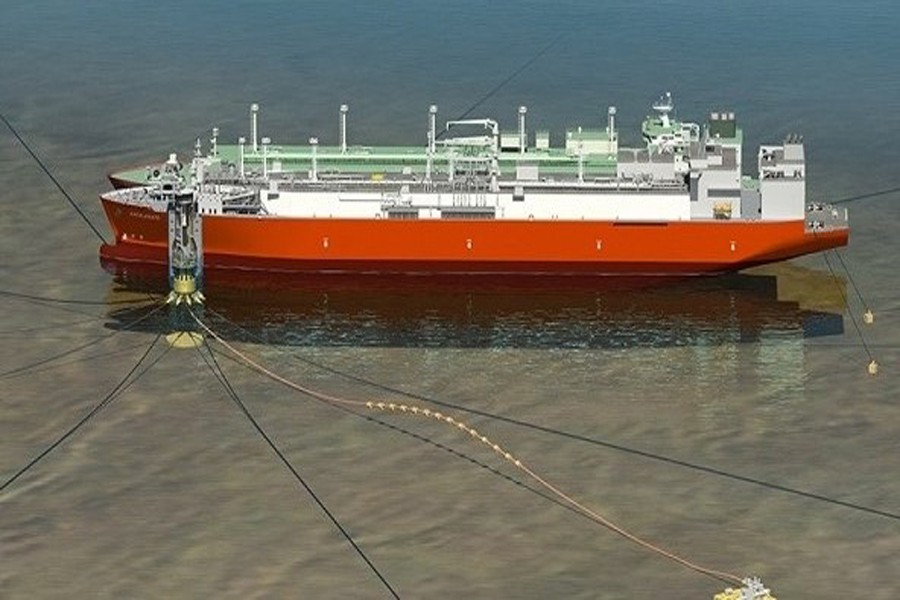
Published :
Updated :

A number of global firms are queueing up to bag contracts for building three small floating, storage, re-gasification units (FSRUs) for imported LNG (liquefied natural gas), said officials.
Some 14 firms including South Korea's Kogas, Belgium's Exmar and Singapore's Pavilion have submitted proposals to the Energy and Mineral Resources Division (EMRD) under the Ministry of Power, Energy and Mineral Resources (MPEMR), they said.
State-run Rupantarita Prakritik Gas Company Ltd (RPGCL) has already invited them to initiate negotiation to reach final deals, a senior RPGCL official told the FE Sunday.
He said the initial negotiation would start from today (Monday).
The government recently decided to build three small FSRUs having the capacity of re-gasifying around 150-200 million cubic feet per day (mmcfd) equivalent of imported LNG to meet the country's mounting natural gas demand, a senior MPEMR official said.
The FSRUs would be built at places adjacent to already-built platform and jetties in the Bay of Bengal and in the river Karnaphuli to facilitate anchorage of small LNG-carrying ships.
These FSRUs would be in addition to the currently under-construction bigger-capacity FSRUs.
One of the small FSRUs will be built at Sangu platform in the Bay of Bengal, said the official.
Australia's oil and gas major Santos-operated offshore Sangu gas field used to supply natural gas through Sangu platform until closure of its operations in October, 2013.
The remaining two FSRUs would be built adjacent to the jetties of state-owned Chittagong Urea Fertiliser Company Ltd (CUFL) and multinational-owned joint venture Karnaphuli Fertiliser Company Ltd (Kafco), he said.
Bangladesh has planned to build these small FSRUs on the basis of unsolicited offers under the Speedy Supply of Power and Energy (Special Provision) Act, 2010.
The law has a provision of immunity to those involved with the quick-fix remedies.
"We want that the small FSRUs start work by August 2018," the official said.
The government is set to start LNG imports early 2018 and is making concerted efforts to move forward with LNG import infrastructure.
The country's first LNG import terminal, a 3.75 million tonne per year FSRU being developed by US-based Excelerate Energy, is expected to be commissioned in April, 2018 and its second, also with a similar capacity of 3.75 million tonne per year, being developed by Summit Group, is likely to be commissioned by end-2018.
The contracts for both the FSRUs were also awarded under the special law.
These FSRUs will be located at Moheshkhali Island in the Bay of Bengal, and ownership of the vessels will be transferred to Petrobangla after 15 years of operations.
Petrobangla is also planning to set up at least two onshore LNG terminals, each with a capacity of 7.5 million tonne per year, by 2025.
Bangladesh last month inked its first-ever deal to import LNG, a new fuel for the country, aimed at meeting the mounting demand for natural gas.
Qatar's RasGas and Bangladesh's state-owned Petrobangla signed the much-expected initial deal on July 13 to import 2.5 million tonne per year of lean LNG for 15 years.
Separately, Petrobangla signed a memorandum of understanding (MOU) with Switzerland-based AOT Energy to import LNG.
Petrobangla's wholly-owned subsidiary -RPGCL - is currently receiving proposals from potential suppliers to select a pool of supplying firms for importing LNG from spot market.


 For all latest news, follow The Financial Express Google News channel.
For all latest news, follow The Financial Express Google News channel.